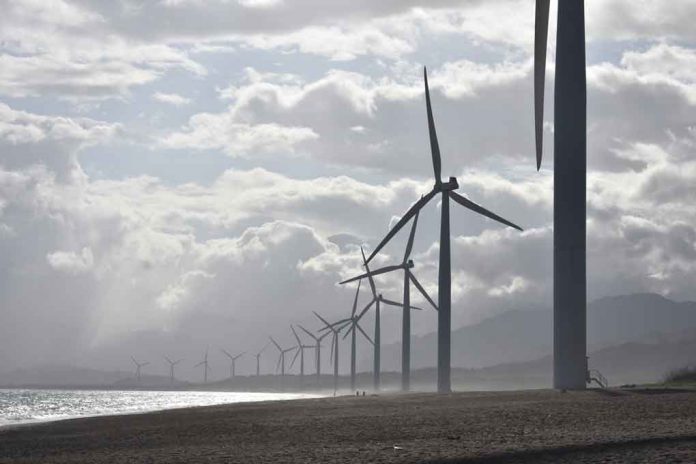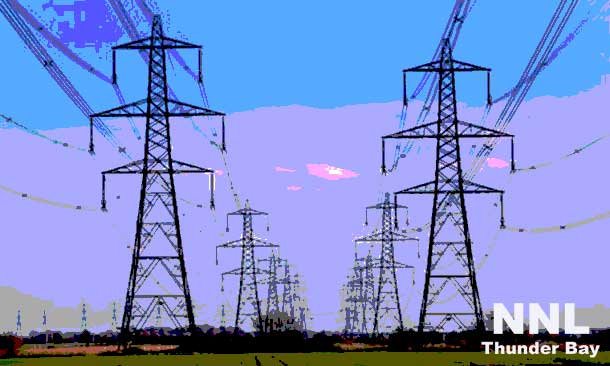The impacts of climate change are being seen far and wide in 2023 from food insecurity, to flooding to drought. July saw Earth’s four hottest days on record, while a dramatic increase in the severity of wildfires resulted in the burning of 14 million hectares across Canada – nearly double the largest area ever recorded – releasing toxic smoke across Canada and the United States.
Reducing a reliance on fossil fuels is an attainable action to address climate change, and it’s what people want, according to a new poll conducted by Abacus Data. The majority of Ontario residents (80 per cent) want clean energy advancements, with 81 per cent agreeing it offers a competitive advantage for the economy. When it comes to their own home’s energy needs, awareness of eco-friendly technologies among Ontarians is low.
Environmental Defence launched the #MyGreenFlag initiative to educate about eco-friendly solutions and make information easily accessible for Ontario residents. The campaign is a play on the red flag/green flag social media trend, where users discuss what a good romantic partner is by sharing what they look for in a relationship (green flag) and what they don’t (red flag). #MyGreenFlag rates efficient, energy-saving, eco-friendly technologies as green flags, with red flags identifying appliances that pose risks to the environment and our health.
“Home ownership or undergoing renovations requires a major commitment. Recognizing those red and green flags before you make the leap can save time, money and reduce energy consumption, which is better for your wallet and the environment.” says Keith Brooks, Environmental Defence’s Programs Director. “That’s the kind of thinking we need from our provincial government too. Unfortunately, their heart seems to be set on expanding gas plants. But we wanted Ontarians to know they can still get cleaner, healthier energy at home.”
What are some home energy green flags?
Electric heat pumps are far more energy-efficient than gas furnaces and air conditioners, but only 34 per cent of Ontarians have heard about them and know what they do, according to the polling results. Widely adopted in Europe and growing in popularity, heat pumps use electricity to extract heat from outside to heat homes in the winter and pull heat from inside to cool homes in the summer. Heat pumps are effective in cold weather up to -30°C because they capture thermal energy remaining in the air.
Six per cent of Canadian homes use heat pumps, according to Stats Canada, but research shows that heat pump adoption rates need to rise to 10 per cent to meet Canada’s 2030 emissions reduction targets.
Another green flag is solar panels, which convert sunlight into electricity to be used immediately or stored in batteries for later use. Using solar at home will cut electricity bills, and some energy providers will pay to use the extra electricity produced.
One of the easiest green flags to implement is choosing Energy Star rated products, which decrease energy consumption and save money. Recognized internationally, the Energy Star symbol indicates high-efficiency and can be found on everything from windows to light fixtures to kitchen appliances and more.
The federal government and some municipalities offer financial incentives and rebates for eco-friendly home retrofits for things like new windows, heat pumps and solar panels that can subsidize the cost of home renovations. Despite being readily available, the poll found 50 per cent of Ontarians are unaware of them.
What are some red flags?
Gas stoves. Gas furnaces. Gas anything… Just like the fuel used to power a car, natural gas used to power homes is composed of methane – a fossil fuel that is over 80 times more potent than carbon dioxide. Using gas appliances releases hazardous pollutants into the air and your home. Stanford University researchers found that while turned off, gas stoves will still leak methane into the air. Even with proper ventilation, gas appliances increase the risk of health problems like childhood asthma and other respiratory concerns.
Switching to electric solutions like induction stoves and heat pumps eliminates the health risks associated with gas, and the increased efficiency and reduced reliance on gas offers the financial benefit of lower energy bills and an escape from volatile gas prices.
Environmental Defence’s #MyGreenFlags website is a central resource for home owners to learn about Ontario’s energy plans, efficient home energy solutions and links to government incentives for eco-friendly retrofits.
To learn more, visit www.greenflags.ca.






